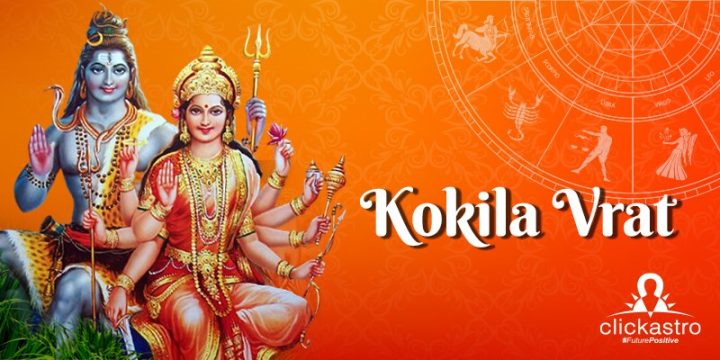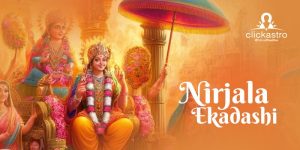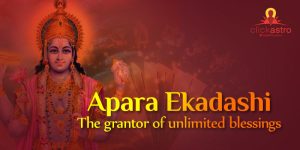Fasts have been an integral part of all religious festivals. Hindu mythology has often portrayed that fasting on specific days bestows glory, success, and happiness on the individual undertaking the fast. Fasting is considered to be an auspicious and integral part of expressing one’s devotion to God. According to Hindu mythology, when a person observes a fast, they take a vow or Sankalp and this is known as vrat. The vow or Sankalp expresses their deep devotion to the Omnipresent. The Hindu fasts are often observed by chanting mantras and hymns in praise of God. Most of the fasts are observed by women, for the good health and prosperity of their husbands and family.
Kokila vrat is one such fast that is observed by Hindu women, on the Purnima day of Ashadha month. This fast is dedicated to Goddess Sati and Lord Shiva. Kokila vrat is observed from Ashadha Shukla Purnima till Shravan Shukla Purnima. This vrat is mainly observed in Northern India and some parts of western and southern India, by both married women and unmarried women. Married women observe the fast for the long life of their husbands and are believed to be blessed as Akhanda Saubhagyavati, ensuring that they never lose their husbands to death. Unmarried girls observe this fast to gain a worthy and virtuous husband. Devotees observing the Kokila vrat are bestowed with prosperity, fortune, health, virtuous offsprings, and wealth and go to the abode of Goddess Parvati after their death.
When is Kokila Vrat in 2025?
Kokila Vrat 2025 will be observed on 10 July 2025 (Thursday). The timings are as follows:
Purnima Tithi Begins at 01:36 AM on July 10, 2025.
Purnima Tithi ends at 02:06 AM on July 11, 2025.
Kokila Vrat Puja Muhurat Timings: 06:40 PM to 08:54 PM
Duration: 02 Hours 14 Mins.f
Kokila Vrat Puja Rituals and Traditions
According to Hindu mythology, worship is not just limited to deities and idols but also includes worshipping birds, trees and animals. In particular, worshipping the cow is considered to be sacred as we believe that the entire universe, along with the three realms, resides in her. During Kokila vrat, worshipping the Kokila bird and the cow is considered to be sacred. The rituals that are followed while observing this fast are the same as any other fast under the Indian Women observing the Kokila vrat should wake up in the Brahmamuhurtha, i.e. before sunrise and after completing their routine tasks, should bathe in a mixture of amla (Indian gooseberry) pulp and water. Performing Ganga snan or undertaking pilgrimages that include bathing in holy waters is also considered to be sacred. After bathing, perform aaradhya to the Sun by using a thick chickpea flour paste and then offer the first bread of the day to a cow. The Kokila vrat rituals are conducted for the next eight to ten days.

The Kokila Vrat Katha
The Kokila vrat story is described in detail in the Shiva Purana and narrates the story of Lord Shiva and Goddess Sati. The story goes as such:
Goddess Sati was the daughter of King Daksha. While King Daksha hated Lord Shiva, Goddess Sati was a strong devotee of Lord Shiva. She undertook a prolonged and rigorous penance seeking Lord Shiva as her life partner and her wish was granted due to her dedication, and she married Lord Shiva. This angered King Daksha and he distanced himself from Goddess Sati, deprived her of all rights, and expelled her from his home and family.

The significance and beliefs of Kokila Vrat and its association with traditions
It is believed that women observing the Kokila fast are bestowed with all happiness in life and are blessed with a unique power within themselves that inspires them to keep their family close-knit, happy and prosperous. This fast makes the devotees capable of enduring every form of hardship and enables them to move ahead in their life successfully. The Kokila vrat also enhances a woman’s personality and beauty as they bathe with herbs during this vrat.
Women observing the Kokila vrat follow a specific bathing ritual by applying Amla paste on their entire body before bathing, for the first eight days. After this, they must bathe using medicinal herbs such as Koot, Jatmasi, raw and dry turmeric, Mura, Shilajit, Sandalwood, Vach, Champak and Nagarmotha, for another eight days. Once this is done, they must bathe using herbs for another eight days. Finally, for the last six days, sesame seeds, amla and all medicinal herbs are used while bathing. It is equally important to worship the cuckoo bird after having their bath. On the concluding day of the fast, the cuckoo bird should be beautified and donated to a Brahmin or the mother-in-law and father-in-law.
Kokila vrat is also associated with folklife and culture, especially in the rural areas where the folklores bring out the mythological significance of this fast. Each sect recognizes the invaluable qualities of nature and performs different forms of religious and spiritual rituals to express their harmony with nature’s bounty. Kokila vrat, likewise, reflects the Indian traditions and our love for nature including animals, birds, trees, and plants as we worship their bounty and blessings.









